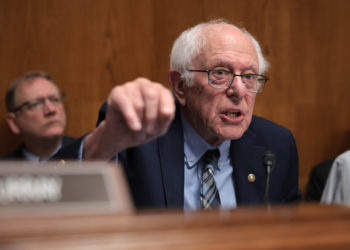Antisemitism is abhorrent. No Jewish person should ever experience it, and universities must do all they can to eradicate it on campuses.
The Trump administration is pushing colleges and universities to address antisemitism by threatening, freezing and revoking federal funding and demanding millions of dollars to settle allegations — or in UCLA’s case, $1 billion.
These unprecedented federal penalties, which the government claims are partially for failing to address antisemitism, leave lots of Black people who either attended or worked at predominantly white institutions asking, “What about us?” Reports of antisemitism sound familiar to Black people who have encountered anti-Black harassment in similar forms.
Generations of Black collegians and employees have been called racial slurs on campuses. The N-word also has been spray-painted and nooses have been hung on Black students’ dorms, on Black culture centers and on portraits and statues of influential Black people across campuses.
Student body presidents who are Black, as well as other Black student organization leaders and employees, have received death threats. One social media post promised: “I’m going to stand my ground tomorrow and shoot every black person I see.” Black people have been physically assaulted on campus grounds; been threatened and targeted by white supremacist hate groups who gain access to campuses; and been racially profiled by campus security personnel. Black campus police officers have reported experiencing “unbearable” racism themselves.
For decades, predominantly white sororities and fraternities have denied Black students membership on the basis of race. Additionally, too many Greek-letter organizations have hosted blackface parties mocking Black people, including some attendees wearing nooses around their necks and others pretending to be enslaved Africans or white enslavers. These and other encounters with anti-Black racism are long-standing, persistent and pervasive.
Asking “what about us” is not intended to diminish the severity of antisemitism or the dangers that Jewish students face. Posing this question also does not indicate that Black people are antisemitic. It comes neither from a standpoint of hatred toward nor carelessness for Jewish people. In fact, firsthand encounters with unchecked racism and harassment on campuses deepen many Black people’s empathy for and outrage on behalf of anyone experiencing discrimination and hate, including Jews. And many Jewish people who are Black know such hostility all too well, having faced both antisemitism and anti-Black racism.
According to FBI data published in 2024, of the 950 religiously motivated hate crimes that occurred at educational institutions between 2018 and 2022, 78.4% were targeted at Jewish people. That is terrible and unacceptably high. During those same years, the statistics also show that of the 2,624 racially motivated hate crimes on campuses, 64.4% were targeted at Black people. That also is terrible and unacceptably high.
Educational institutions across the U.S. clearly have serious problems with hate crimes against both Jewish and Black people. But for some reason, the Trump administration is neglecting to hold colleges and universities financially accountable for one like it is the other.
For more than two decades, I have conducted research on campus racial climates. Surveys of and interviews with millions of students, faculty and staff on hundreds of campuses turned up numerous examples of antisemitism and far more examples of anti-Black racism. Volume and frequency do not make one any more or less important than the other. Both deserve fierce institutional and governmental responses. Islamophobia, sexism, xenophobia, homophobia, weight and body-type bias, ableism, ageism and every other form of discrimination and abuse also deserve the most serious forms of accountability. But that has not happened, at least not in the manner or to the extent that it is occurring now in the name of combating antisemitism.
There is shamefully abundant evidence of attacks on Jewish people on campuses. This warrants an immediate response by the federal government, by campus leaders, by state officials and anyone else who has the power to effect change. Meanwhile, Black students and employees are also continuing to experience unforgivably high levels of racial discrimination, harassment and abuse. Why is this not receiving a serious response from the Trump administration? Why has no college or university ever been required or expected to pay $1 billion (or any amount close to that) for the racial discrimination and violence that Black people endure on campuses? From today onward, what price will institutions of higher education pay for anti-Black racism?
Shaun Harper is a professor of education, business and public policy at USC and the author of “The Big Lie About Race in America’s Schools.”
The post Contributor: Black people on campuses support fighting antisemitism and also wonder, ‘What about us?’ appeared first on Los Angeles Times.




